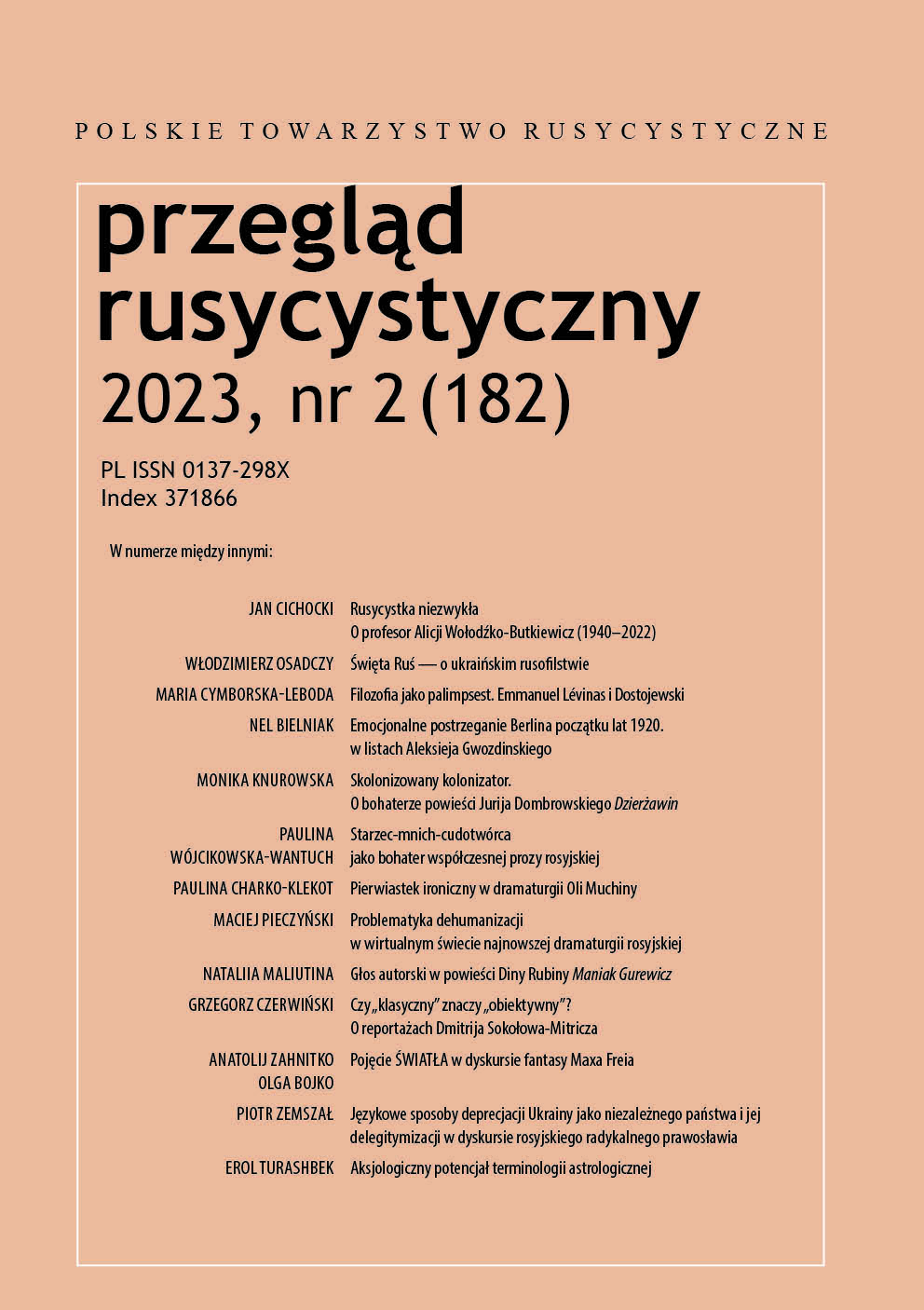ПРОБЛЕМА ДЕГУМАНИЗАЦИИ В ВИРТУАЛЬНОМ ТЕКСТЕ НОВЕЙШЕЙ РУССКОЯЗЫЧНОЙ ДРАМАТУРГИИ
THE ISSUE OF DEHUMANIZATION IN THE VIRTUAL TEXT OF THE LATEST RUSSIAN DRAMA
Author(s): Maciej PieczyńskiSubject(s): Russian Literature, Drama
Published by: Polskie Towarzystwo Rusycytyczne
Keywords: Russian drama; dehumanization; virtual world; postmodernism; simulacra;
Summary/Abstract: Post-Soviet Russian-language dramaturgy is text-centric and literature-centric. The most important point of reference for its creators is the widely understood text. Both literary and cultural texts. In their works, playwrights replace performative representation with retrospective storytelling. The center of interest is not so much the surrounding reality as its cultural image. In recent years, this image has become more and more virtual. Dramaturgy willingly uses information technology. Dialogues resemble online chats, and the characters’ relationships evoke associations with contact maintained via social networking sites. The reduction of the presented world to the level of virtual space results in the degradation of humanity. The protagonist of a contemporary drama, immersed in the space of the Internet, loses contact with the world around him. This in turn leads either to a complete demoralization or even to a complete dehumanization. In the discussed texts, man becomes his own digital simulacrum. Dehumanization is either literal or metaphorical. In the first case, the hero either loses his human nature or is not human at all. He ends up in the virtual world, turning into a character from a computer game, as in the play Net by Valery Pecheykin. Or maybe he’s part of that world himself — a video blogger with a camera instead of a hand, or an intelligent personal assistant named Siri. The protagonists, addicted to the Internet, and immersed in virtual space, are metaphorically dehumanized. The characters of the plays Journal of Alona Chizhuk by Julia Voronova and Grisha by Inga Vosk communicate with each other only through chats and social networking sites. The man described by contemporary Russian-language playwrights often uses an online nickname instead of his name, and treats sex, usually virtual, as an escape from reality, losing the ability not only to love but even to feel physical pleasure. The intertextual, text-centric “new drama” is slowly giving way to a new phenomenon that can be described as the Internet “new-new drama.” It is also text-centric, but at its center is virtual text.
Journal: Przegląd Rusycystyczny
- Issue Year: 2023
- Issue No: 182
- Page Range: 99-123
- Page Count: 25
- Language: Russian

